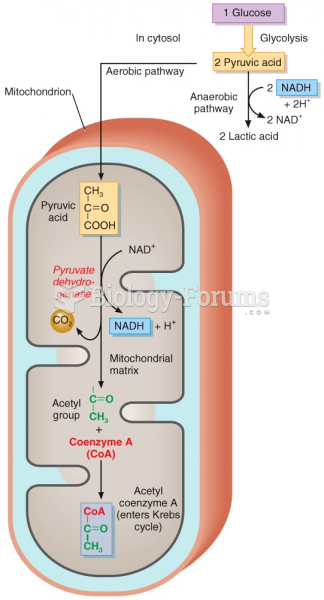|
|
|
Did you know?
People about to have surgery must tell their health care providers about all supplements they take.
Did you know?
Lower drug doses for elderly patients should be used first, with titrations of the dose as tolerated to prevent unwanted drug-related pharmacodynamic effects.
Did you know?
The term pharmacology is derived from the Greek words pharmakon("claim, medicine, poison, or remedy") and logos ("study").
Did you know?
Approximately 500,000 babies are born each year in the United States to teenage mothers.
Did you know?
Nearly 31 million adults in America have a total cholesterol level that is more than 240 mg per dL.







